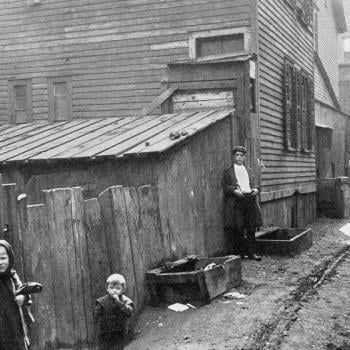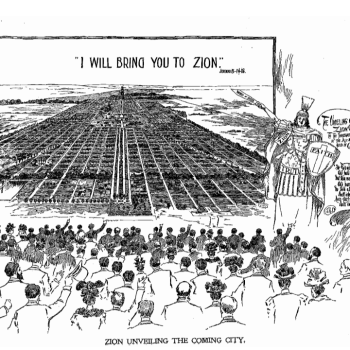Samuel Willard (1640-1707), minister at Boston’s Third Church—“Old South”–offered a heady dose of Puritan political thought in his classic election sermon, “The Character of a Good Ruler.” A conventional part of Massachusetts government from the colonial period into the late nineteenth century, election sermons aimed to remind elected and electorate alike of the gravity of political choices. The 1694 address was pronounced after a period of tumult, from the change of Massachusetts’ charter to the upheaval of witchcraft accusations and executions in 1692.
Coming at an extraordinary time, the sermon rehearsed themes persistent in American political discourse: the importance of the legislator’s fear of God, the error of vaunting self-interest over common weal, the danger of parties or factions.
While some of the minister’s cautions may now sound strange to readers, some ring familiar. For instance, while Willard claimed that “Civil Rulers are God’s viceregents here on earth,” he also insisted that “people are not made for rulers, but rulers for a people.” And while New England had a few families whose names recurred among the elected, Willard argued that
Civil government is seated in no particular persons or families by a natural right, neither has the light of nature, nor the Word of GOD determined in particular, what form of government shall be established among men, whether monarchical, aristocratical, or democratical–much less, who are individually to be acknowledged in authority, and accordingly submitted to. Nevertheless the holy providence of GOD presides in this matter–sometimes, by a more immediate, and extraordinary pointing to the persons and families, when by revelation He declares His pleasure in it. Thus was Saul set up over the Kingdom of Israel, and afterwards David was thus chosen of God, and an entail made of the Crown on his posterity, but this way has long since ceased. Sometimes it is more mediate and ordinary, and that is, either forcible….Or voluntary, which is by the free consent of a people, orderly, and without compulsion establishing the fundamentals of government among themselves, and the methods of introducing persons into authority–which methods are not prescribed in Scripture, but remain points of prudence, and may lawfully be divers here and there.
Much of the sermon provides what its title promises, describing the kind of person who ought to be chosen for office. That that person should be good, that voters only should want to elect someone good, was beyond dispute. But Willard also turned attention to the voters themselves. Bad consequences followed voters’ bad choices: “And as it is a thing very grateful to men to have some hand and consent in the appointment of their own rulers, so they do either make or mar themselves by the using or abusing of such a liberty.”
With our votes, we make or mar ourselves. Willard’s warning is powerful, and timely.
When this power is immediately devolved upon some persons, they have great advantage to procure either the happiness or misery of their people. Such electors therefore are under the obligation to be very wary in the application or themselves to the nomination of the persons for such a trust….Here then you are told what qualities are to be eyed in those whom you fix your choice upon. Whatsoever other rules discretion may point to be observed in this affair, yet these must always be of the quorum. It is true, there are none without their failings, nor can we expect that the best of men will never do amiss, but yet the best are to be preferred, as they that will do it seldomest, and never of [from] design. They that fear God will be afraid willfully to hurt men; they that are just will do justice, and that can wrong none….There is no misery greater, or less pitied, than what men foolishly bring on themselves, and none will be equally blamed for it, as they who were the guilty occasions of it, or more deserve it.
Willard’s counsel was fitted for a pious, industrious population in colonial Massachusetts but applies aptly to nearly any environment where people elect those who govern: “Choose such men, and then you may expect to be so governed,” so that if you choose badly, “if you have a mind that prophaneness and debauchery should take place, and bear all down, here is the readiest way for it.”












